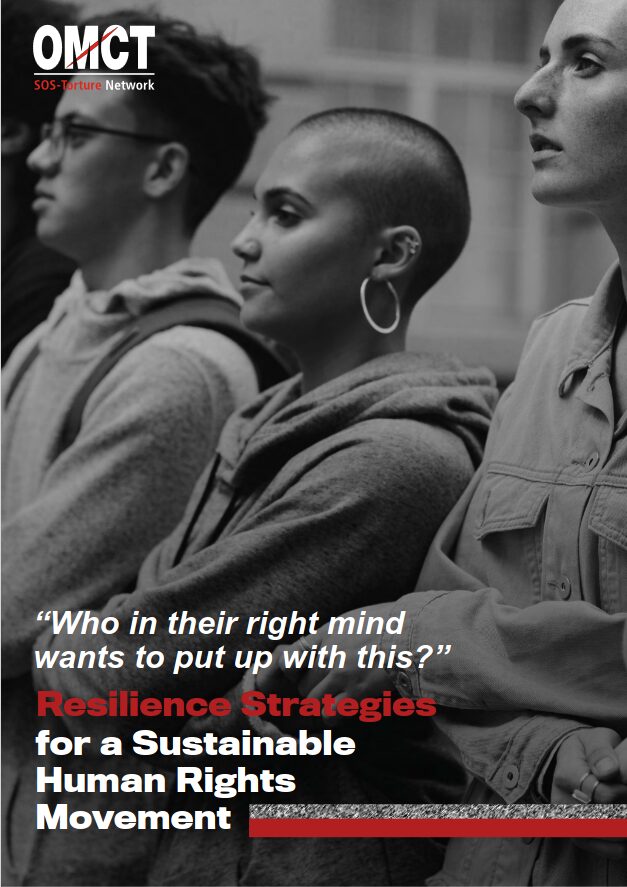In dozens of countries, the defence of human rights exposes activists to severe personal risks, resulting in psychological suffering that impacts their capacity to carry out their work. This has led rights organisations to develop mitigating strategies to support their staff members. The World Organisation Against Torture (OMCT) publishes today a guidebook highlighting a large array of such best practices.
“Human rights defenders play an essential role in their societies but are forced to work in an increasingly hostile environment”, said Maria Lesire-Schweitzer, coordinator of the guidebook. “They face violence, intimidation, and baseless legal persecution. This is combined with difficult working conditions, characterised by constant strain and urgency. It is therefore not surprising that many of these women and men end up battling depression, trauma, burnout, and other mental health disorders.”
 From Afghanistan to Guatemala, from Russia to the Philippines, from Egypt to Israel to Palestine, human rights groups have developed positive strategies to help their staff members cope with high levels of stress and fear and with the consequences of witnessing abuse and trauma in the survivors they try to help. Some of their experiences are published in the guidebook, titled Who in their right mind wants to put up with this? – Resilience strategies for a sustainable human rights movement, which is based on best practices collected among 23 member and partner organisations of OMCT’s SOS-Torture Network.
From Afghanistan to Guatemala, from Russia to the Philippines, from Egypt to Israel to Palestine, human rights groups have developed positive strategies to help their staff members cope with high levels of stress and fear and with the consequences of witnessing abuse and trauma in the survivors they try to help. Some of their experiences are published in the guidebook, titled Who in their right mind wants to put up with this? – Resilience strategies for a sustainable human rights movement, which is based on best practices collected among 23 member and partner organisations of OMCT’s SOS-Torture Network.
“Despite their exposure to trauma, our colleagues have shown incredible resilience and developed innovative strategies to maintain their well-being and keep up their vital work”, said Lesire-Schweitzer. “We hope the experiences we publish today will inspire other defenders who face similar challenges, whatever the country they live in.”
Read the guidebook here.


